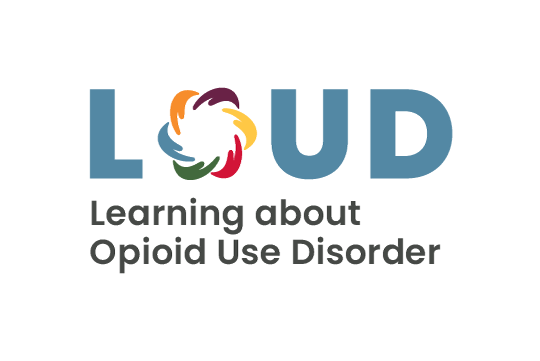
LOUD in the Emergency Department Collaborative
A provincial initiative to improve quality of ED care for people living with opioid use disorder (OUD).
Strengthening OUD care in EDs is critical to saving lives, reducing opioid-related harms and reducing the burden of the toxic drug poisoning public health emergency.
By participating in LOUD in the ED, ED teams can accelerate provincial change in improving OUD care by gaining access to tools, resources and clinical and quality improvement supports for improving OUD care delivery that is timely, effective, safe and patient-directed.
Did You Know?
Emergency departments are critical places of opportunity for early engagement of substance use care and prevention of toxic drug poisonings.
Approximately 60% of those who experience a toxic drug poisoning have visited the emergency department in the year prior for various health reasons.*
Starting buprenorphine-naloxone in the ED more than doubles the 30-day retention in addictions care relative to referral alone.*
People who leave the ED after a toxic drug poisoning event are over 7 times more likely to die within a year compared to those visiting for other reasons, and studies have shown that nearly 1 in 5 who visit the ED due to opioid-related harms leave without completing their care.*
LOUD in the ED Collaborative Overview
LOUD in the ED is led by Health Quality BC in partnership with Emergency Care BC and the BC Centre on Substance Use. This work is being done in collaboration with health authorities, with funding and support from the Ministry of Health through the Community Action Initiative.
Focus Areas
ED teams of all sizes engage in activities designed to improve OUD identification, therapeutic intervention and connection to follow-up, with the overall aim of reducing the number of deaths due to BC’s ongoing toxic drug crisis.
Participants take action alongside their peers by connecting with clinical and quality improvement experts and accessing tools and resources that have been co-developed with practitioners, people with lived/living experience and leaders in the health system. This includes Implementation Supports for the Integrated Interdisciplinary Model of Opioid Agonist Treatment (IIMOAT), Peer Support Toolkits, Decision Support Tools for OUD Care Support, a Guide to Measuring Change and more.
Expectations of Participation
To engage in the program, participating ED teams are expected to:
Funding Available to Participate
There is no cost to participate, and no quality improvement experience is necessary.
LOUD in the ED Collaborative TIMELINE
LOUD in the ED Collaborative Frequently Asked Questions
Have a question that’s not answered here? Reach out to us at loud@healthqualitybc.ca.
Ready to Improve OUD Care in Your ED?
Action starts here. Enhance OUD care and make a difference in your ED.

